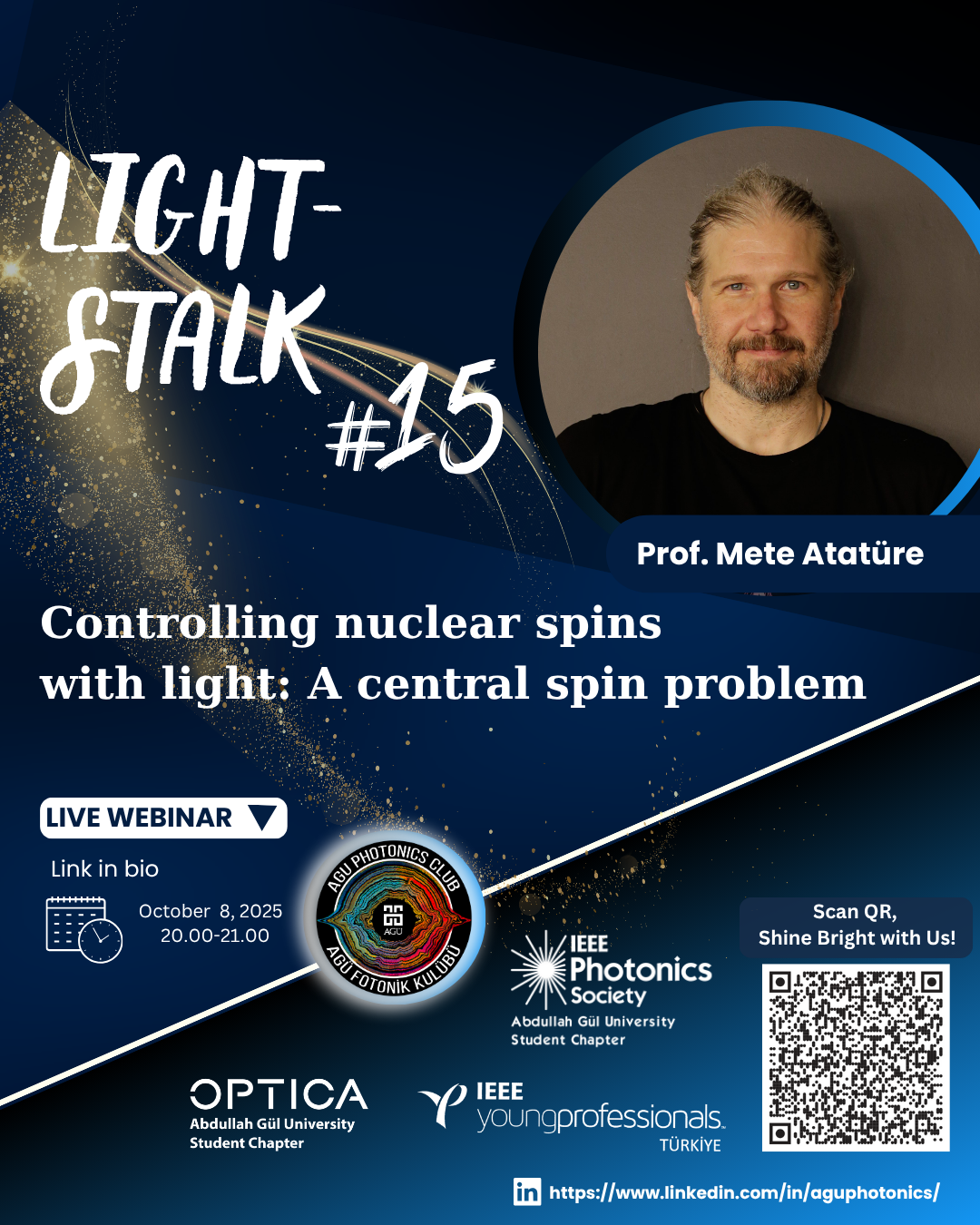LIGHTSTALK #15: Controlling nuclear spins with light – A central spin problem
🌟 Brace yourselves – LIGHTSTALK is making history! 🌟
On October 8, 2025, at 20.00 (GMT+3), we are beyond thrilled to host Prof. Mete Atatüre, an internationally renowned physicist from the University of Cambridge, in our 15th LIGHTSTALK event! 🎉 Get ready to witness cutting-edge science as he takes us deep into the fascinating world of quantum: "Controlling nuclear spins with light: A central spin problem." 💡✨
Date and Time
Location
Hosts
Registration
-
 Add Event to Calendar
Add Event to Calendar
Loading virtual attendance info...
Speakers
Mete Atatüre of University of Cambridge
Biography:
Prof. Dr. Mete Atatüre has been the Head of the Cavendish Laboratory in the Department of Physics at the University of Cambridge since 2023. Previously, he worked as a research assistant at the Institute for Quantum Electronics at ETH Zurich with Prof. Dr. Ataç İmamoğlu. Atatüre completed his doctorate in 2002 at Boston University, in the then newly established Quantum Imaging Laboratory. He received his bachelor's degree in physics from Bilkent University in 1996.
Research topics encompass various material platforms for quantum networks and quantum sensors, based on light-matter interactions. Her research is supported by numerous grants from the European Research Council (ERC), including ERC Starting, Consolidator, Advanced, and Proof of Concept grants. Atatüre, who was appointed Co-Director of the UK Quantum Technology Centre Q-BIOMED, established in 2024 for the development of quantum sensors for medicine and life sciences, is also developing quantum networks as a co-founder and CSO (Chief Science Officer) of the company Nu Quantum.
Atatüre is an elected member of prestigious institutions such as the Optical Society of America (Optica), Academia Europaea (AE), the Institute of Physics (IoP), the Science Academy Society (Turkey), and the European Academy of Engineers (EAE). In 2020, he was awarded the IoP Thomas Young Medal and Prize for his contributions to quantum technologies. Additionally, he represents Turkey in the working group of the European Federation of Academies of Sciences & Humanities (ALLEA), which provides academic advice to the European Commission. Atatürk, who also valued the relationship between science and society, made efforts to improve the understanding of science in Turkey and to ensure the autonomy of academic institutions.


